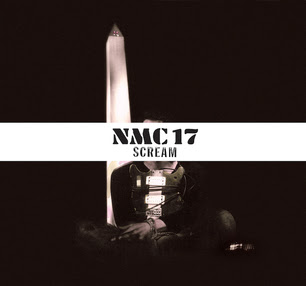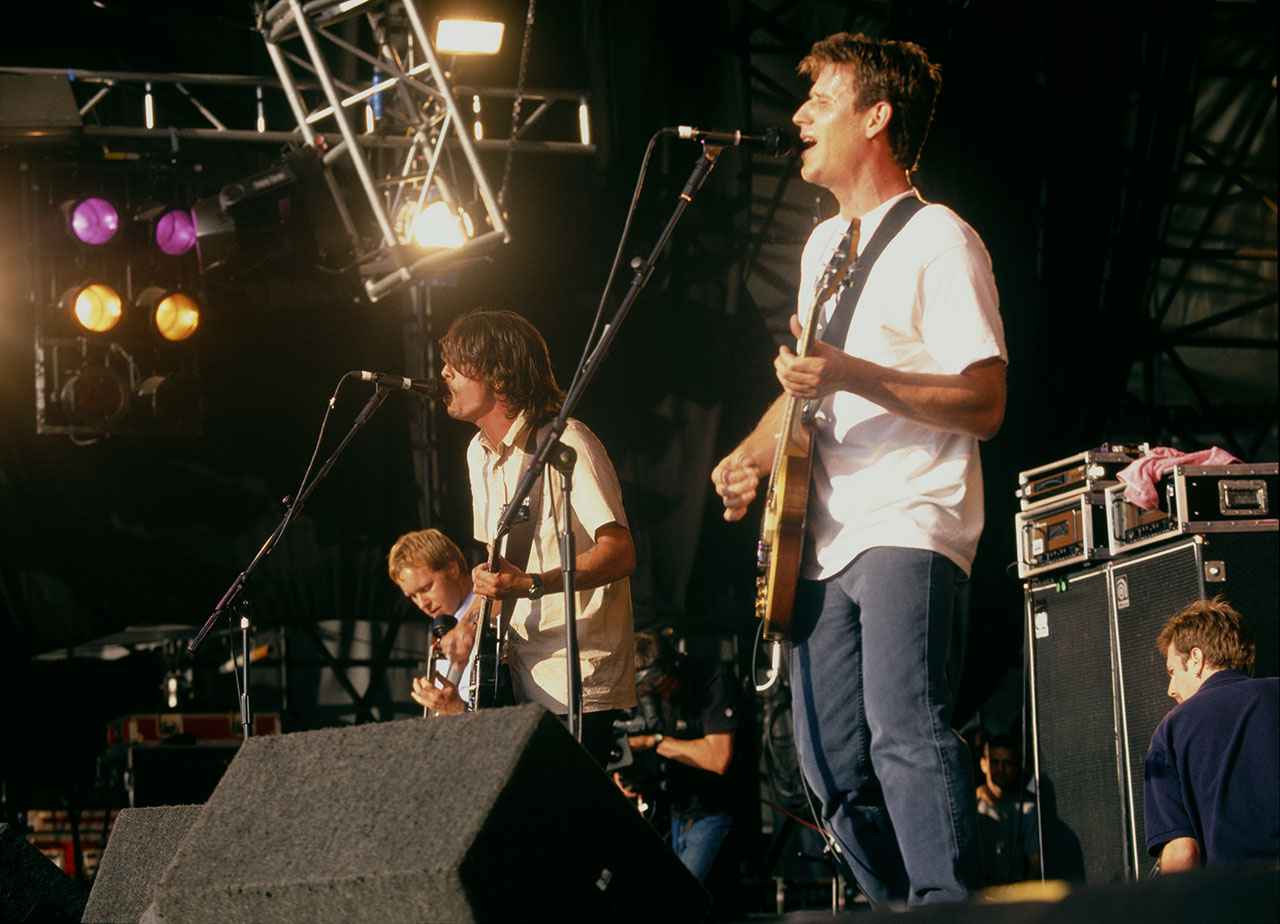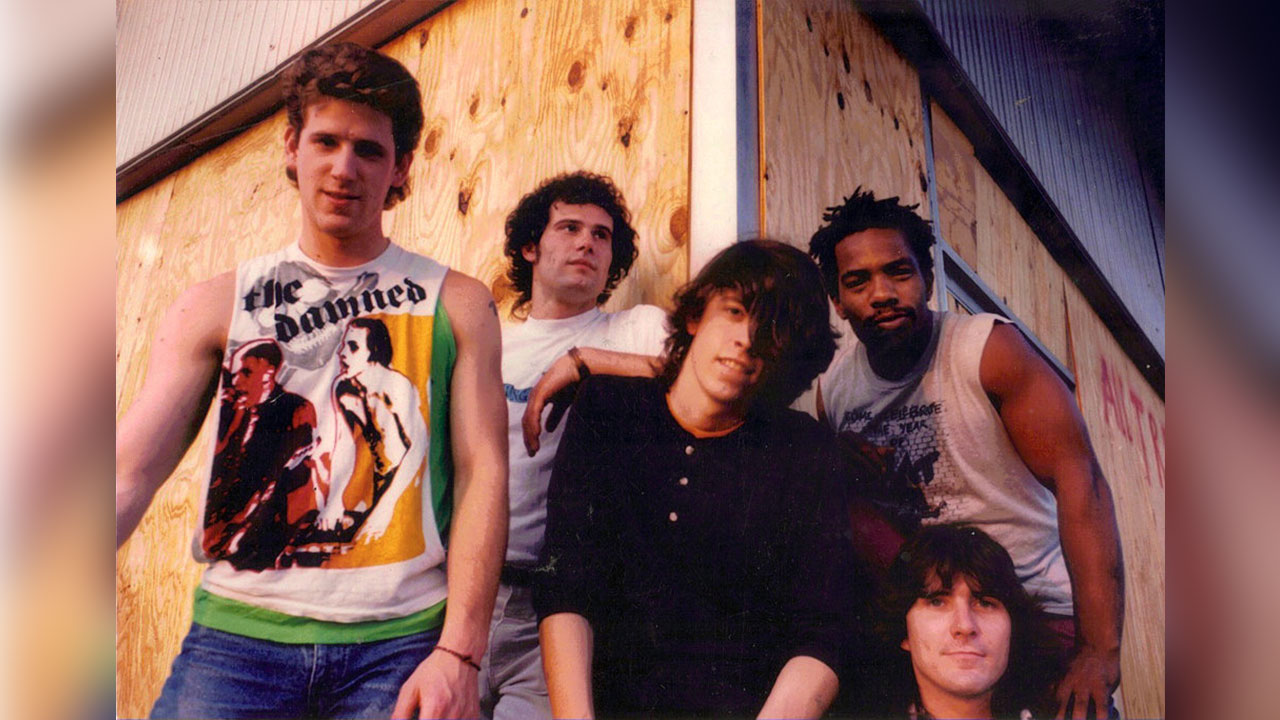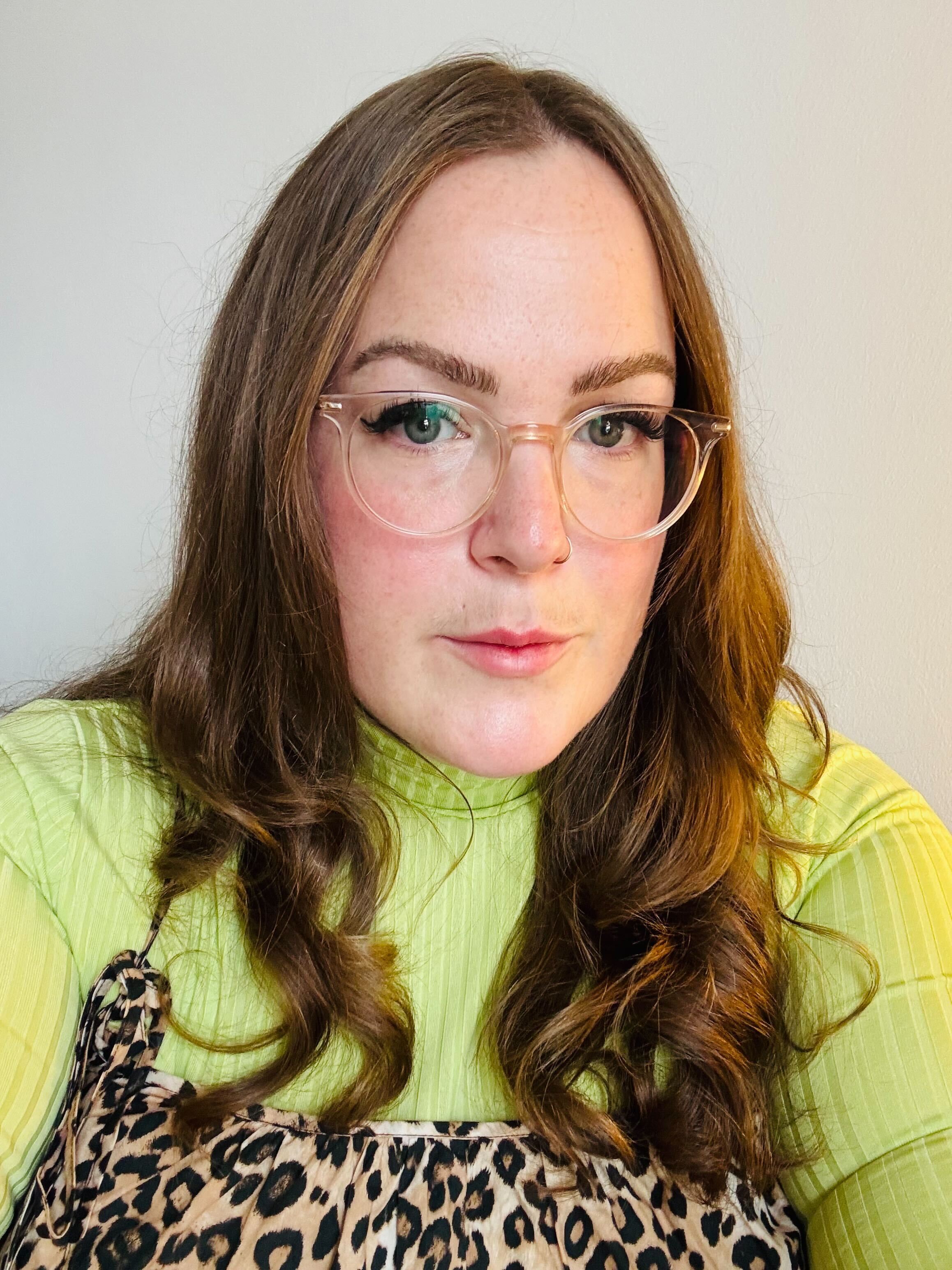In the early ‘80s, as hardcore punk tore through the basements of Washington, DC, newcomers Scream – comprised of vocalist Pete Stahl, his brother and guitarist Franz Stahl and bassist Skeeter Thompson – began to make a name for themselves on the scene. Their taste for no-holds-barred sociopolitical commentary made them a natural signing on the Dischord Records roster, while a reluctance to align themselves with any genre beyond just “music” equally marked them out from their peers. While they released three records with the iconic DC label – 1983’s Still Screaming, 1985’s This Side Up and 1986’s Banging The Drum – with their fourth record, 1988’s No More Censorship, it was time to branch out.
“We got this deal with RAS Records, which was being hoo-hooed because it was a major label; it wasn't Dischord anymore,” Franz Stahl tells Louder via a crackly Skype connection from his Hollywood home. Like dozens of bands before and since, their move from indie label to major was met with upset from fans – and the deal didn’t bring in the audience the band might have expected. “We went in and did this record, and then we toured off of it, and basically that was it – it just fell through the cracks somewhat,” says Stahl.
Time passed, and the album risked being consigned to obscurity – until a chance discovery transformed its fate. Now, 30 years since the album’s release, Scream have re-released No More Censorship with a reissue just about as lavish as you could expect from a hardcore punk record. “Years on, [photographer] Naomi Peterson called my brother and said ‘They're throwing out a bunch of stuff’, and they happened to find the masters to that record in the trash can. When we suddenly got these masters, our friend Greg Anderson at Southern Lord Records got wind of it. He offered to have it remixed, remastered and to put it out.”

1. Take It From The Top
2. Something In My Head
3. Binge
4. God Squad
5. Hit Me
6. Building Dreams
7. No More Censorship
8. It's The Time
9. Fucked Without A Kiss
10. GLC
11. Run To The Sun
12. No Escape
The final piece of the puzzle came when another old friend got involved. “We got ahold of the tapes and got them baked, and we hit up Dave about it, and he was like, 'Yeah, man, you can do it in 606 for free,'” says Stahl. The Dave to which Stahl is referring here is, of course, Dave Grohl; the former Nirvana drummer who, before lighting a fire under Seattle’s musical explosion, was firmly ensconced in the DC punk scene. Scream was the then-17-year-old Grohl’s first “proper” band, which he joined after original drummer Kent Stax departed in ‘86 – but not before lying about his age and dropping out of high school to get there. The relationship between Grohl and Stahl developed into a rich musical legacy, with Stahl eventually recruited into Foo Fighters in the late ‘90s. No More Censorship marked both Grohl’s first recorded turn for Scream and his major label debut – it follows that the original has long been out of press.
But for the band, the record’s long-time unavailability didn’t present much of a worry. “We'd always been really upset with the record itself, with the production and everything – we never really liked it,” admits Stahl. But with the recovered masters, a second chance presented itself. “We loved the songs, and we always talked about 'Oh, if we could only get a chance to redo it’. It was so nice to actually be able to redo it in the manner that we had envisioned.”
“We just got rid of a lot of the 80s cliched stuff, a lot of the reverb, and tried to bring the vocals straight in your face, make it not sound so big – just kind of straight forward. I think we succeeded in that. I was glad Dave finally came to the studio the last week we were there. He took a special interest in the drums, tweaked them and helped on that end, and that was cool. It was [like] stepping back in time – in the reel boxes, there was all the old track listings from the old studio, and our writings and little notes. It was really cool to see some of the stupid shit we wrote down.”
Some of that old “stupid shit” has also found its way into the reissue. “My brother kept this journal – this was back before cell phones and the internet, so we had a book with phone numbers and little notes that we would take on the road. It's the actual journal that we got printed up,” says Stahl of the booklet that comes as part of the vinyl package. “It's really cool because a lot of it's from just sitting in the van driving across country, making notes about, oh, so-and-so, the promoter, and his phone number's there, and underneath that someone's just started scribbling in notes and writing stupid shit. Or Pete’s thinking of lyrical ideas and writing them down, or he would read a newspaper article and he would tape it to the journal to use it later on lyrically, or to speak about that night at a show. That's how you did things back then. You didn't have a laptop or a phone to throw notes down onto, you had to pull over and find a phonebooth and contact people.”

Like many of their late ‘80s Dischord counterparts, with No More Censorship, Scream found themselves pushing to be more than just your average DC punk band. “Building Dreams, Run To The Sun, I'd written all these on piano, keyboards, this cheap little Casio that I had, and some other keyboard that I had that I acquired,” says Stahl. “I wanted to write on the piano and keyboard because it was a challenge for me. It also was kind of the scene at the time – keyboards, synthesisers – in the 80s, stuff like that, for good or bad, crept in. I mean, this was the first time we had a real budget in the studio. It was 24 tracks; it was kind of like our Exile On Main St. We threw everything in there – acoustic guitars, synthesisers, everything. When we came to remix everything, I stripped the large majority of that away.”
In order to expand their sound, their influences broadened. “I was a huge Damned fan. They've always been one of my favourite bands aside from the Bad Brains. I was heavily listening to Strawberries – for Dreams, I fucking ripped The Damned right there. I'm not ashamed to say that Run To The Sun, I got that, not by ripping verbatim, but I was listening to U2 and stuff like that. That whole repetitive lick, it's kind of U2 territory, to me anyway. By the same token, for Take It From The Top, we were listening to a lot of thrash metal, and that creeps in too, as well as all the punk rock stuff we were listening to. I don't think we were your typical punk rockers. We had quite an eclectic palate of music that we would listen to on a daily basis – it wasn't like we spent 24 hours a day listening to Crass albums. We listened to everything.”
A band of Reagan youths, the work of Scream was always explicitly political in nature, taking aim at the former President’s disruptive foreign policy and controversial economic doctrine. With No More Censorship, the band confronted the administration’s stifling handling of the arts head-on. They’re issues Stahl believes will strike a chord with many hearing the record for the first time today. “We've always been an activist band, and it still holds its meaning,” says Stahl. “Obviously it’s coincided with what's going on now. I mean, we begun the process of doing the reissue a couple of years ago, before this idiot was elected. So it's not so much about what's happening today, but the relevance of that record – of what we were saying and how we felt – is still true today, regardless of who's in power. It's intensified with this administration that's currently in office, but it's been this way since Reagan; Obama was doing a lot of shady shit, too, but they all do. But now? It's horrifying what's going on now.”
Thirty years since its initial release, the No More Censorship reissue isn’t just a celebration of that album, but also of three decades of band history. “Of course when you re-release a record like this, it is nostalgic and it brings back a lot of memories,” says Stahl. “It's a different lifetime to look back on, but it's a very cherished point in our lives, doing what we were doing back then. We were always playing, always touring, always writing and recording music. Even though we've all stayed very busy musically, we don't do it like that anymore. Scream started playing again in 2010, and even that is very infrequent, because we all live in different states, we all have jobs and families and it's hard to do that on a consistent basis.
“But we're all the same, we've just gotten older,” concludes Stahl with a chuckle. “The obvious difference is the fact we all have fucking reading glasses now. But other than that, we're all the same fucking kids who never grew up, love punk rock, and love playing music and doing it together.”
No More Censorship is available now via Southern Lord Records.

